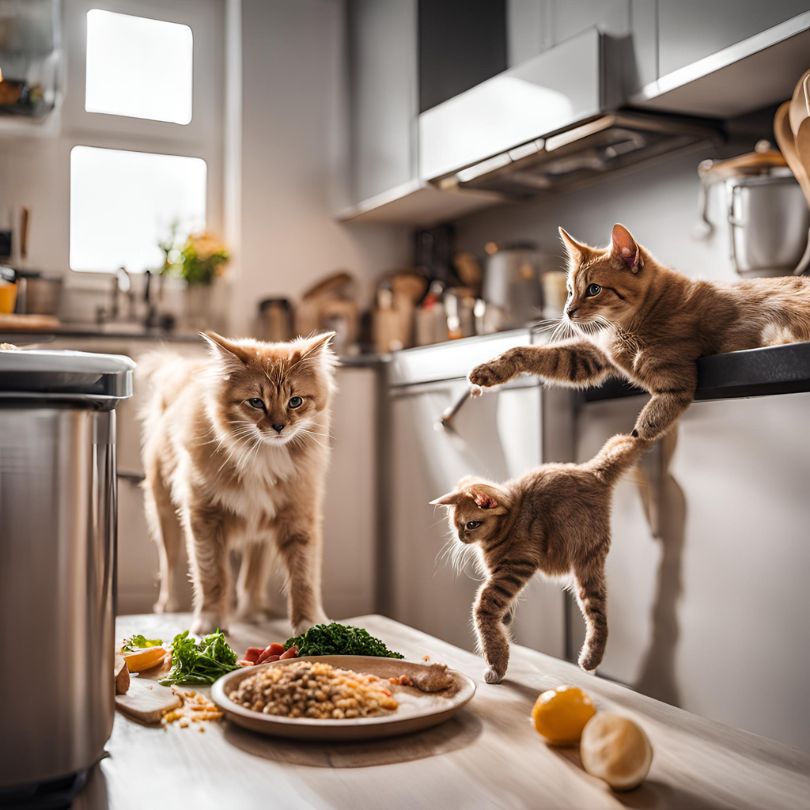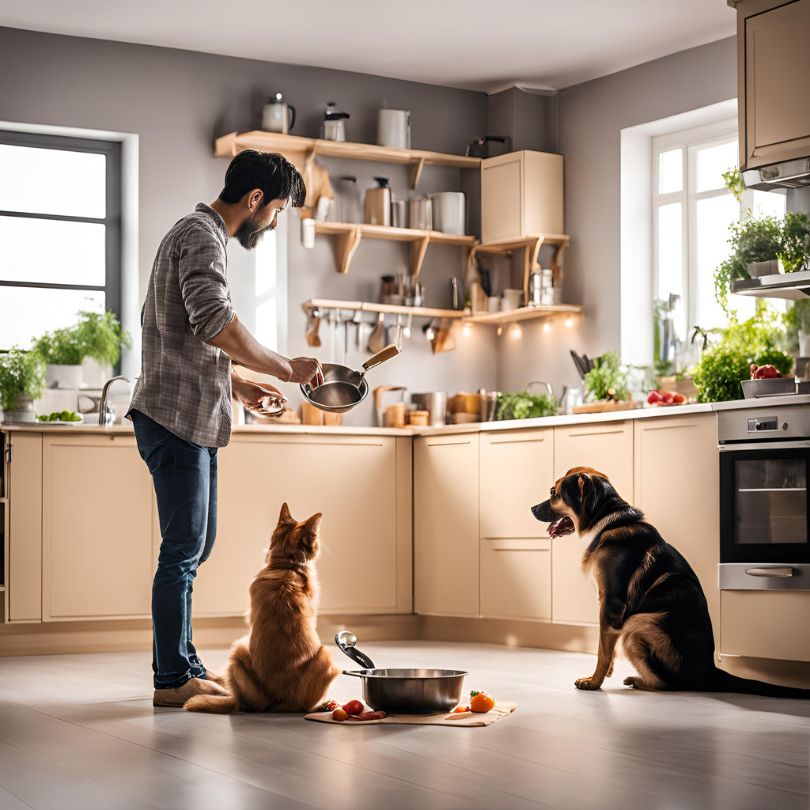The food we give our pets plays a crucial role in their overall health and happiness. While commercial pet food is convenient, homemade meals can provide significant benefits for dogs and cats. Preparing your pet’s meals allows you to control ingredients, tailor nutrition, and ensure quality. Let’s explore why homemade pet food can be the best choice for your furry companions and how it can lead to a healthier, more fulfilling life for them.
1. Total Control Over Ingredients
One of the biggest advantages of homemade pet food is knowing exactly what goes into your pet’s meals. Many commercial pet foods contain artificial additives, preservatives, and fillers that may not benefit your pet’s health.
Why it matters:
– You can avoid harmful chemicals and low-quality ingredients.
– You choose fresh, high-quality proteins, vegetables, and grains.
For example, lean meats, sweet potatoes, and spinach are all nutritious, pet-friendly choices that can be included in your homemade recipes.
2. Tailored to Your Pet’s Needs
Every pet is unique, with individual dietary needs based on age, breed, activity level, and health conditions. Homemade pet food allows you to customize meals specifically for your pet.
How this helps:
– Pets with allergies or food sensitivities can avoid problematic ingredients.
– Overweight pets can benefit from controlled portions and healthier recipes.
– Senior pets or those with health issues like kidney disease can get meals that support their medical needs.

3. Improved Digestive Health
Many pets suffer from digestive problems caused by certain ingredients in processed foods, like grains or artificial flavors. Homemade meals, made with natural and easily digestible ingredients, can significantly improve your pet’s digestion.
Key benefits:
– Fresh, natural ingredients are easier for pets to process.
– Probiotic-rich additions like yogurt or pumpkin can promote a healthy gut.
4. Fewer Additives and Preservatives
Store-bought pet food often contains synthetic additives to extend shelf life or enhance flavor. Over time, these can lead to health problems. By cooking for your pet, you can eliminate unnecessary additives.
Advantages of fresh meals:
– Fewer risks of long-term health issues caused by artificial substances.
– Better nutrient absorption thanks to the absence of fillers.
5. Stronger Bond Between You and Your Pet
Making food for your pet is an act of love that strengthens the connection you share. It shows your dedication to their health and happiness, which your pet can sense.
Emotional benefits:
– Your pet will look forward to mealtime more.
– You’ll feel rewarded knowing you’re providing the best care.
6. Potential Cost Savings
While high-quality commercial pet food can be expensive, homemade meals can save money in the long run, especially for multi-pet households. Bulk-buying fresh ingredients and preparing meals at home often costs less than premium pet food brands.
Pro tip:
– Use seasonal ingredients to keep costs low while maintaining variety.
7. Enhanced Nutritional Value
Homemade meals can be more nutrient-dense than processed kibble or canned food. Fresh ingredients retain their vitamins, minerals, and antioxidants, ensuring your pet gets maximum nutrition.
Examples of nutrient-packed ingredients:
– Lean meats like chicken or turkey provide essential protein.
– Carrots, blueberries, and spinach are rich in vitamins and antioxidants.
What You Should Know Before Switching to Homemade Pet Food
While homemade food has many benefits, it’s essential to plan carefully to ensure your pet gets a balanced diet. Here are a few considerations:
1. Consult a Veterinarian or Pet Nutritionist:
Work with a professional to design a meal plan that meets your pet’s specific needs.
2. Include All Essential Nutrients:
Homemade meals should contain a balance of proteins, carbohydrates, fats, vitamins, and minerals. For example, adding fish oil can provide Omega-3 fatty acids.
3. Avoid Harmful Foods:
Some human foods are toxic to pets, such as chocolate, onions, garlic, grapes, and xylitol.
4. Plan for Variety:
Rotate ingredients to provide a diverse range of nutrients and keep mealtime exciting for your pet.
Sample Recipe for a Balanced Homemade Meal
Here’s a simple, veterinarian-approved recipe for your furry friend:
Ingredients:
– 1 cup of cooked lean chicken or turkey (boneless, skinless)
– 1/2 cup of steamed carrots and green beans
– 1/4 cup of cooked brown rice or quinoa
– 1 tsp of fish oil for Omega-3s
Instructions:
1. Cook the meat thoroughly, ensuring there are no bones.
2. Steam the vegetables until soft.
3. Mix all ingredients together in the desired portion size.
4. Let cool before serving to your pet.
Homemade pet food can be a rewarding way to give your pets the best nutrition and show them just how much you care. While it requires time and effort, the health benefits, stronger bond, and peace of mind are well worth it.
By choosing fresh, natural ingredients and tailoring meals to your pet’s needs, you’re not just feeding them—you’re giving them the gift of a healthier, happier life.

